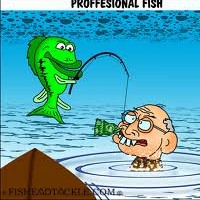Lost golf ball ruling!
Question
"I have read the rule book and spoken to members of my club and I have still been unable to find a definitive answer to the following situations.
Situation:
While playing in a competition I hit a tee shot and it seems to head into some trees and bushes towards some out of bounds markers. I then take a provisional shot from the tee and hit it beautifully down the middle of the fairway leaving me with a perfect approach shot to the green.
As I am walking towards where my first ball may be I am thinking to myself that it may be better NOT to find it given the position of my provisional!
However I start to look but to be honest I'm not looking too hard when one of the other players says "here's your ball!"
Questions:
1. Can an opposing player identify the ball as mine?
2. Can I say I don't want the opposing player to help me find the ball?
3. Could I say that it isn't my ball and declare it lost?
4. Whilst I know you have up to 5 Mins to look for a ball can I only spend say 1 min before declaring it lost?
5. Would it have been within my rights to have just walked directly to the position of the provisional ball declaring the first lost without even looking for it?
I appreciate your help here..!
Answer
Greg: I'll answer your questions then provide a rules quote that should lend support .
1. Yes
2. Yes, but he has the right to do so anyway.
3. The rules stipulate that each player put an identifying
mark on his ball. Such a mark is usually announced on
the first tee. Without such a mark, if your original
ball was found in a favorable position and you couldn't
identify it by your mark, it would be lost.
4. Yes, but if your opponent elects to continue the search,
he may.
5. Yes, if you play the provisional from a point beyond that
which the original is likely to be, the original is then
deemed lost, even if your opponent should find the
original before the 5 minutes had passed.
Now, here's the rule:
27/13 Refusal to Identify Ball
Q. A player purposely refuses to identify a ball as his. What can the opponent or a fellow-competitor do in such a case?
A. An opponent or fellow-competitor has the right to be satisfied about the identification of a player抯 ball.
If a player has dishonestly not identified his ball, the opponent or fellow-competitor may refer the dispute to the Committee ?Rule 34-3. In such a case, the Committee would be justified in imposing a penalty of disqualification under Rule 33-7.
Q. A player searched for his ball for two minutes, declared it lost and started back to play another ball at the spot from which the original ball was played. Before he put another ball into play, his original ball was found within the five-minute period allowed for search. What is the ruling?
A. A player cannot render a ball lost by a declaration ?see Definition of 揕ost Ball.?The original ball remained in play ?see Definition of 揃all in Play.?
Q. At a par-3 hole, a player hits his tee shot into dense woods. He then hits a provisional ball which comes to rest near the hole. In view of the position of the provisional ball, the player does not wish to find his original ball. He does not search for it and walks directly towards his provisional ball to continue play with it. His opponent (or fellow-competitor) believes it would be beneficial to him if the original ball were found. May the opponent (or fellow-competitor) search for the player抯 ball?
A. Yes. In equity (Rule 1-4) he may search for five minutes provided that in the meantime the player does not play a stroke with the provisional ball, it being nearer the hole than the place where the original ball is likely to be. The player is entitled to play such a stroke. If he does, the original ball is then lost under Rule 27-2b and further search for it would serve no purpose. In match play, if the player so proceeds and his provisional ball is closer to the hole than his opponent抯 ball, his opponent may recall the stroke (Rule 10-1c). However, recalling the stroke would not change the status of the original ball, which was lost when the provisional ball was played out of turn. See also Decision 27-2c/2."
Fairways and Greens,
John
www.golfnutts.com
ccipping
Lost Ball ruling!


